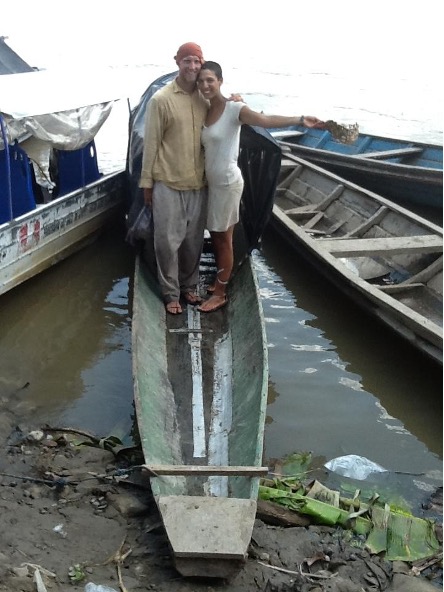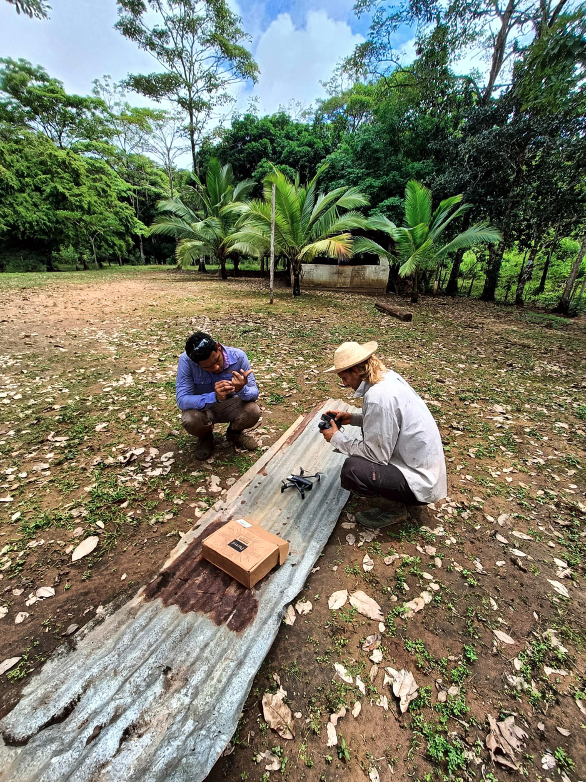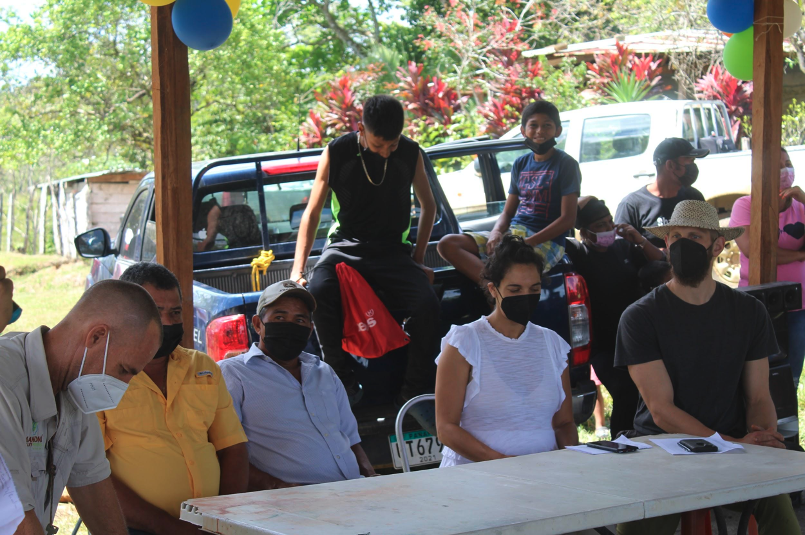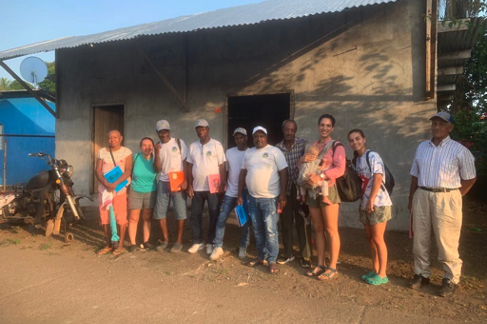
“I Know It’s Harmful to Cut Down the Rainforest, But How Will I Survive?”
IIE Centennial Fellow Jessica Ausinheiler Aims to Protect and Promote Biodiversity in Panama
JANUARY 24, 2024
JESSICA AUSINHEILER, IIE Rodman C. Rockefeller Fellow 2023-2024
Panama contributes very little greenhouse emissions, yet it is disproportionately vulnerable to the harmful effects of climate change. These challenges, compounded by poverty, threaten to strain the natural resources of a country considered one of the most biologically diverse in the world. As part of its efforts to empower Fulbright alumni to take climate action, IIE selected Jessica Ausinheiler as a Rodman Rockefeller Centennial Fellow for the 2023-24 year. With support from the Fellowship, Ausinheiler is currently in Panama, working with smallholders to design and map a comprehensive system that pays them for implementing conservation services. The project seeks to increase smallholder participation in conservation and a commensurate decrease in smallholder deforestation in Panama and globally.
In her first blog entry of the year, Ausinheiler summarizes her project and motivation for taking climate action in Panama.
What inspires you to take climate action?
I first met Nature in the Catskills. I had dressed in my stepfather’s old military boots and external frame backpack for a week-long outdoor freshman orientation trip. Luckily my trip leaders outfitted me with lenders that protected my feet and kept my stuff dry as we tracked through Her humid mountains.
I fell in love with Nature around the same time I fell in love with a young nature-lover—the bird-watching kind. Together we biked the Sierras of California, canoed across the Andes of my mother’s native lands, and kayaked in the Caribbean Sea. But it was not until I first gave birth that I decided to advocate for our natural environment—“Wild Nature,” as I call her. Childbirth was one of the most challenging and beautiful experiences I’ve ever had; I borrowed strength from my matriarchs and suddenly felt connected to women everywhere. As I looked at my daughter’s face and read about mothers’ courage and leadership in the face of a changing climate—one book in particular, titled All We Can Save by Dr. A. E. Johnson and Dr. K. Wilkinson, had a profound impact on me—I urgently felt compelled to protect and nourish Her—to take care of all of us.


Five years, a graduate degree, and a second child later, we shifted our personal and professional lives to center Wild Nature, with professional, economic and geographic implications. We moved from the West Coast of the U.S. to the tropical rainforests of East Panama. I transitioned from strategy and operations consulting with one of the world’s largest professional services firms to organizing alongside community-based conservation organizations. Determined to take climate action, I applied for and was awarded a Fulbright U.S. Student grant to investigate the role of governance in a European Union project focused on conservation in the 45-square-mile Mamoní River valley in East Panama.
During my Fulbright research experience—which allowed me to return to the kind of community organizing work in which I was engaged in my early 20s—I cataloged all the community’s ideas of projects that could benefit them and Wild Nature. I also met leaders and entrepreneurs who were excited to get started. I listened to neighbors—most of whom were family-scale ranchers and slash-and-burn agriculturalists—who wanted to improve the quality of the air, soil, and water in the valley, but didn’t have access to the resources needed to feed their families any other way. I met young people who loved bird watching, orchid-growing, and biology; they spoke so passionately about Panama’s natural resources, saying that their “gold” is green. I came across artistic people who wanted to supplement their income by drawing the incredible diversity of wildlife, distilling the essence of plants in soaps, and healing through massage in the rainforest.
So, at the behest of my community, I joined forces with one of the founding residents of the eastern side of the valley and the grandson of a founding resident on the western side to co-found a community-based organization sponsored by Panama’s Ministry of Environment to develop and implement the initiatives we identified over the course of my Fulbright research.
How did you learn about the IIE Centennial Fellowship?
During my Fulbright research, I found very little trust built between the local population and conservation organizations, which made recruitment for the program, BONO POR LA CONSERVACIÓN, unexpectedly difficult. Slowly, we started with one family in 2022, then two in 2023. And we found similar initiatives to organize smallholders in East Panama and Darien who wanted to access payments for the ecosystem services they provide here at the edge of the Tumbes-Chocó-Magdalena Bioregion—one of the top 25 most biodiverse places in the world.
This is where things stood until one day I received an email regarding the 2023-24 IIE Centennial Fellowship. It was just what I needed to focus on growing the program more intensely within the valley and regionally, in a way that empowers and facilitates existing smallholder conservation efforts.
Tell us about your project. What are your goals for the 2023-24 year? Why is this project meaningful to you?
As an IIE Centennial Fellow, I am focusing on one of the community-identified initiatives during my Fulbright research. I am developing a direct conservation program that retroactively pays small landholders for secondary forestry; rather than cutting it down for agriculture or cattle ranching, they let the greenery grow adjacent to primary rainforest or waterways in the previous year. This year, I strive to design and gain buy-in for a system that pays smallholders for regrowing rainforest in critical areas of the Tumbes-Chocó -Magdalena biological corridor.


This project is deeply personal to me because its direct beneficiaries are neighbors in the Mamoní River valley and friends in other remote areas of Panama; because I am passionate about preserving wild spaces for my great-grandchildren, and yours; and because I am deeply concerned about the human suffering that will accompany rainforest destruction, especially for women and children in our least-resourced communities.
Named in honor of IIE’s Centennial and association with the Fulbright Program, the IIE Centennial Fellowship seeks to help enhance Fulbright as a life-long experience and recognize alumni whose work embodies the program’s underlining values of mutual understanding, leadership, global problem solving, and global impact.